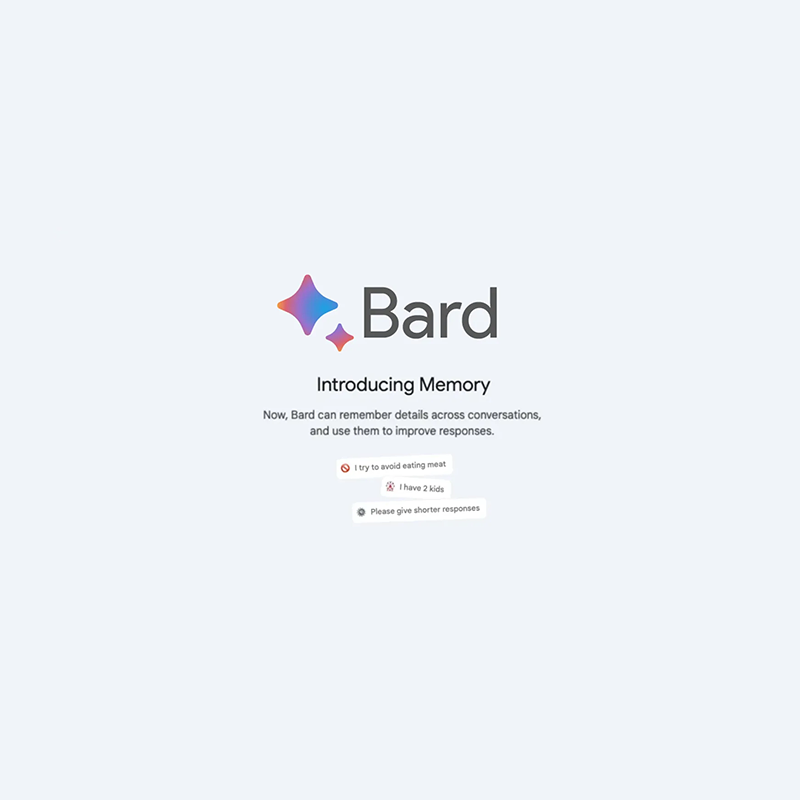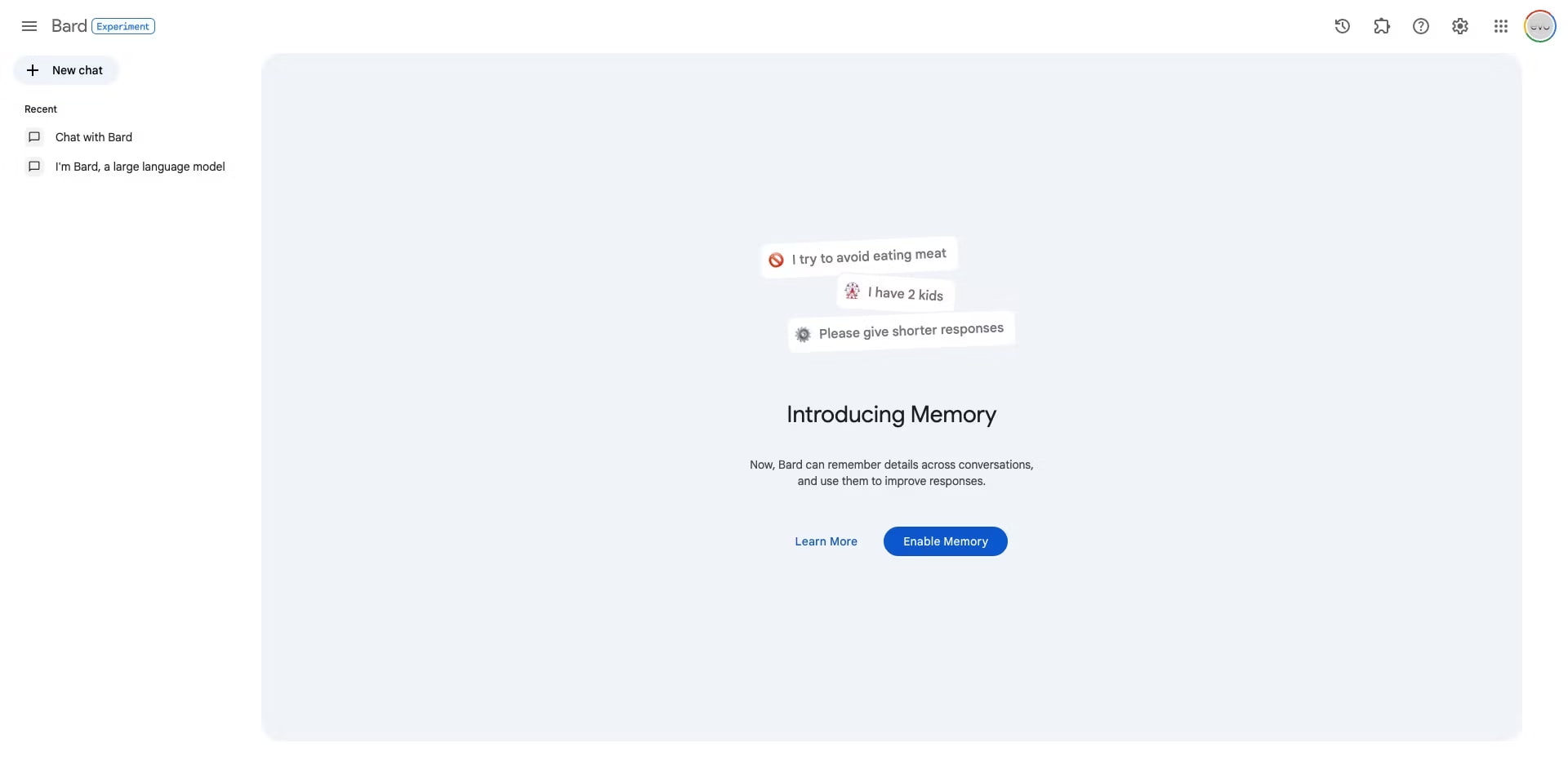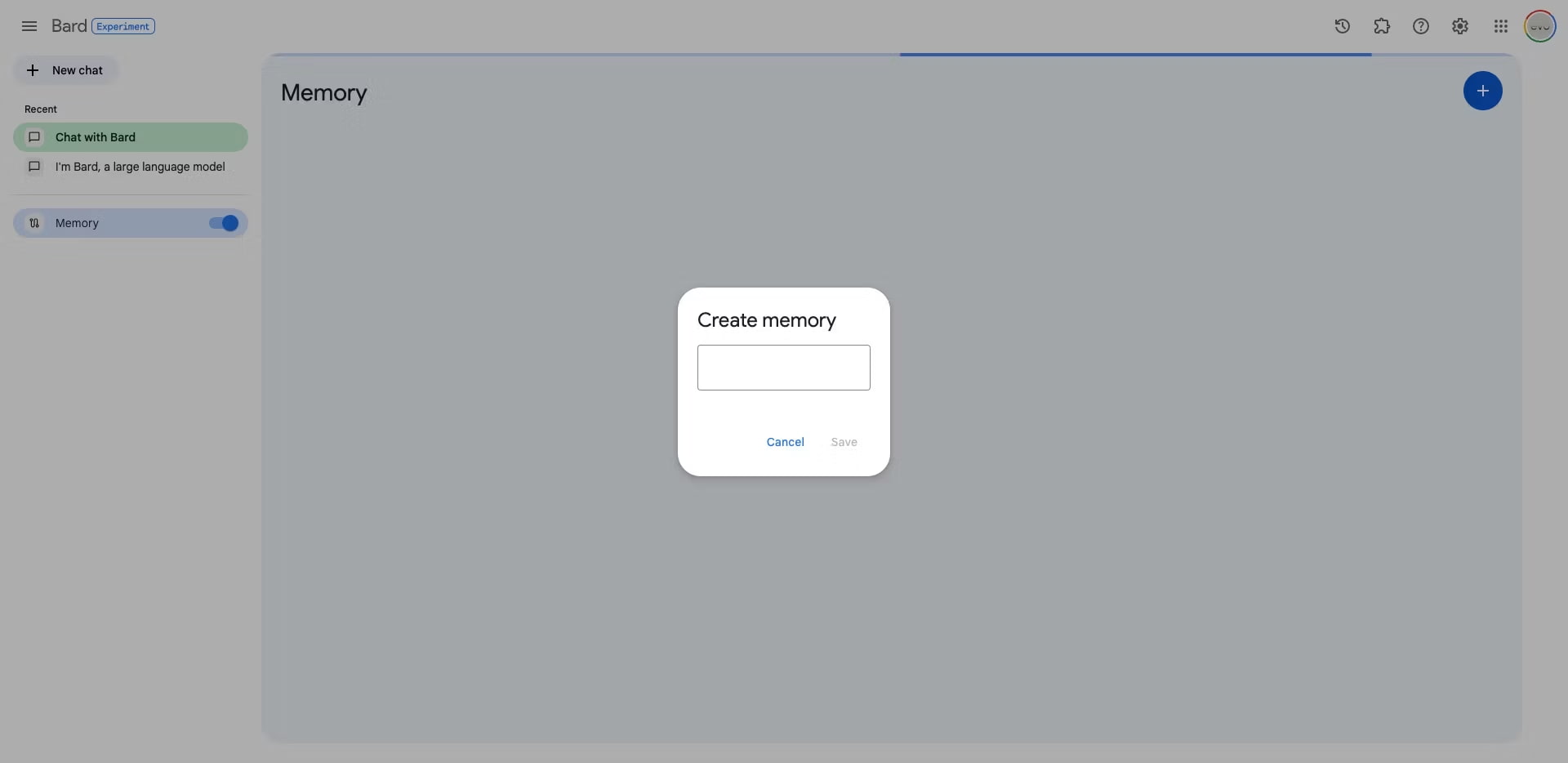
It's Goliath versus David, but not some ordinary "Goliath", or some ordinary "David."
This is because it's Google against OpenAI. Google has been in business for far longer than OpenAI. and that the former has become the undisputed champion of the web, that even Microsoft cannot compete against.
Despite being one of the pioneers in AI, and that Google had first announced its plans to become an "AI-first" company during I/O 2017, Google has been kind of lagging when it comes to "generative AI."
The company was a bit late in the business.
As a result of this, OpenAI has put fear deep into Google's heart.
While Google has since gradually built on its infrastructure, which eventually led to the launch of Bard, albeit its botched introduction, Google has also been taking big steps to compete with OpenAI's ChatGPT.
And this time, besides the help of Extension, Google is making another key addition to Bard.
Google calls it the 'Memory'.
The feature allows Bard to learn more about its users for additional context on future requests.

In detail, Memory is designed to help Bard create more personal responses based on the individual's history. Before, Bard would previously start each session with a blank slate, without knowing any details about users, besides anything being put through Extensions.
But with Memory, toggling the feature on will allow Bard to greet users with a page prompting them to check out Memories.
"Now, Bard can remember details across conversations, and use them to improve responses," said Google.
In an example, Google explained that users can say "I try to avoid eating meat," and that "I have 2 kids," and "Please give shorter responses."
When one of these memories are set up on Bard, the AI will ensure the responses reflect this.
In this case, the AI could potentially recommend recipes that don't contain meat or make travel plans for the family, taking the number of children into account and giving more concise answers to queries.
Long story short, Bard's Memory feature is similar to ChatGPT's 'Custom Instructions' feature.
But what makes Memory different than Custom Instructions is that, Memory can work in tandem with the information pulled up from Extensions.
What this means, provided users have given the required consent, Bard can include user information taken from Google Apps, like from Maps, YouTube, Docs, Gmail, and more, and add those information on top of what it has in Memory.
Read: OpenAI Introduces 'Custom Instructions' So ChatGPT Users Don't Have To Repeat Themselves

While Google keeps on improving Bard, knowing that its competitors are also doing the same thing, Bard's presence has received quite a privacy concern.
Earlier, the company was scrutinized for indexing private Bard conversations for Google Search.
It acknowledged this issue shortly after, saying this was not intended behavior and that it would block conversations from being indexed.
Privacy implications extend beyond just this, because as Bard relies on the internet itself for information and train, Google is forcing itself to claim that it has the right to use whatever publicly available information to train its AI.
Google however, allows publishers to block Bard from accessing their content using a web crawler it calls the 'Google-Extended'.